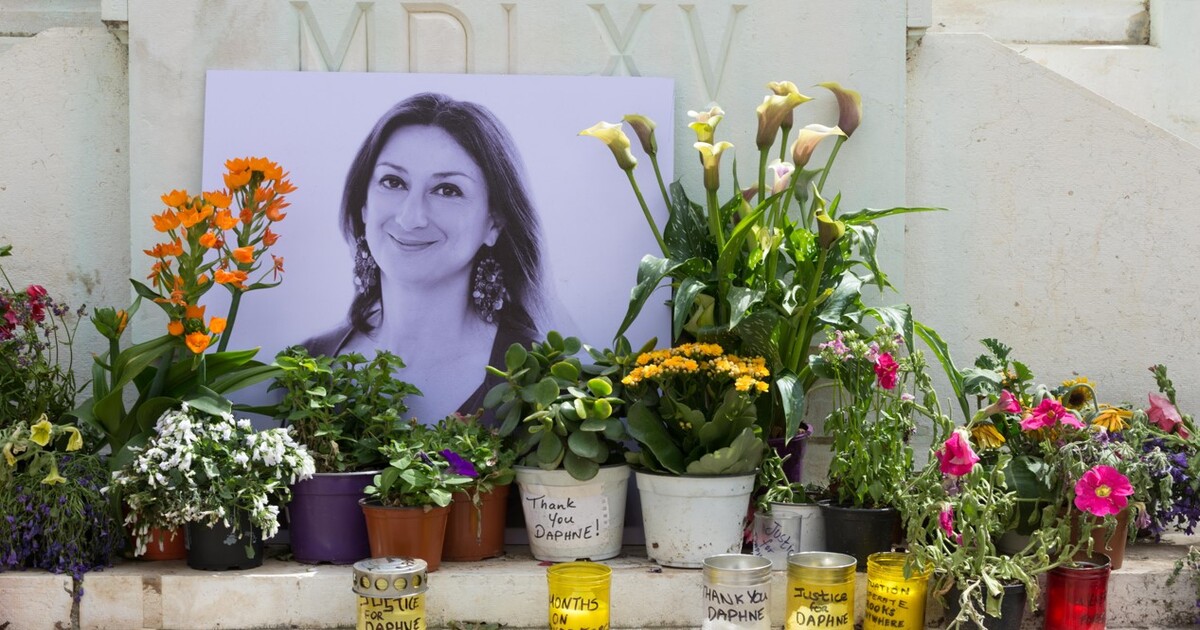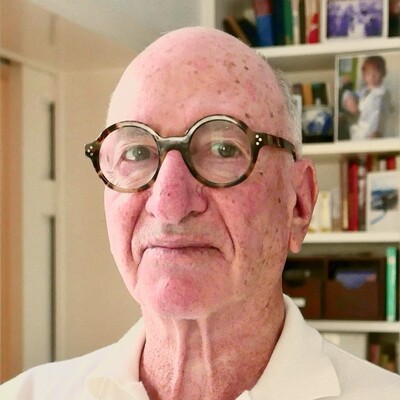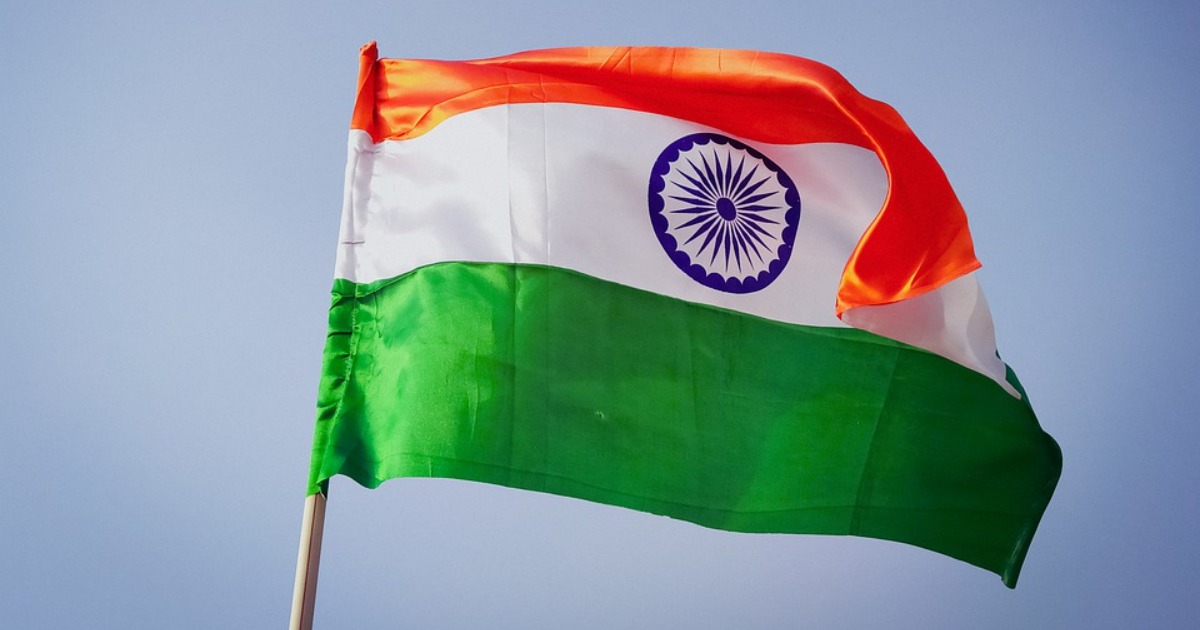Remembering the Dead: We Must Do More
World Press Freedom Day and the legacy of Daphne Caruana Galizia reminds us of the urgency of fighting corruption and supporting civil society activists.
May 4, 2024

A Strategic Assessment Memo (SAM) from the Global Ideas Center
You may quote from this text, provided you mention the name of the author and reference it as a new Strategic Assessment Memo (SAM) published by the Global Ideas Center in Berlin on The Globalist.
Approximately 120 people gathered in front of the central law courts of Malta to hold a vigil in memory of Daphne Caruana Galizia. It was the evening of April 16, and every month, on the 16th, a similar vigil is held. The message: We dare never forget Daphne’s courage and heroism.
“Justice for Daphne” is the slogan that abounds in the square. One speaker after another at the vigil asserted that the fight for justice continues. It was on October 16, 2017, that Daphne was blown to pieces in her car.
She had tirelessly deployed her formidable journalistic skills, year upon year, to investigate and expose corruption at the highest levels of government and business. She paid the ultimate price.
Easy to forget
As I stood in the square alongside members of Daphne’s family, and ordinary citizens who have kept her causes so vibrant, it struck me how easy it is to forget those individuals who, like Daphne, risked everything to expose corruption, promote freedom, justice and democracy.
How easy it is to forget Alexei Navalny, who was murdered in a Russian prison. Boris Nemtsov, who was killed near the Kremlin. Anna Politkovskaya, who was assassinated in her Moscow apartment. Jamal Khashoggi, who was butchered in Saudi Arabia’s consulate in Turkey. Georgiy Gongadze, who was killed in the forests outside Kiev. Ján Kuciak and his fiancée, Martina Kušnírová, who were killed in their home in Slovakia.
How long will their names be remembered when Western governments return so swiftly to “business as usual” with murderous regimes?
They are the murdered ones. Then there are thousands of civil society activists and journalists who languish in jails in scores of countries. Their sole crime is that they called for justice in their countries. Now, they suffer for their patriotism and, for the most part, the world forgets them.
The EU not stepping up
Malta is a European Union member state, and its Commission should have spared no effort to follow up on the countless stories that Daphne Caruana Galizia published about massive thefts of public funds. The EU authorities did nothing until Daphne was murdered.
President Abd el-Fattah Saeed Hussein Khalil el-Sisi has run Egypt’s kleptocratic regime since 2013, and locked up tens of thousands of people that it considers to be critics.
The vast human rights violations were not publicly mentioned when the European Union recently provided $8 billion to the regime. At the same time, the IMF – whose major shareholder is the United States, which had been negotiating a $3 billion deal to bail-out cash-strapped Egypt – suddenly approved a bail-out providing $8.2 billion.
And at the same time, the United Arab Emirates announced a fast-disbursing $35 billion investment in Egypt.
Within a couple of weeks, Egypt received over $50 billion in fresh funds – with none of the creditors displaying the slightest concerns for the lack of freedom that pervades the country. Egypt’s masses of political prisoners are largely forgotten.
Sanctions are easy to announce
On the eve of the second anniversary of Russia’s invasion of Ukraine, President Biden announced more than 500 new sanctions against Russia for its ongoing war of conquest on Ukraine – and for the death of Alexei Navalny, who was a courageous anti-corruption activist and Putin’s fiercest opposition leader.
The U.S. President added that these new sanctions “will ensure Putin pays an even steeper price for his aggression abroad and repression at home.”
The sanctions will inconvenience many Russian individuals in business and government, constraining their international travel and financial dealings. But, like Western sanctions imposed after Russia captured Crimea in 2014, and after the multitude of sanctions after the Ukraine invasion in 2022, these new sanctions will not deter Putin’s zeal to wage war – or further murder and imprison critics.
Sanctions without teeth
The key sanctions lack sharp teeth. Russia continues to find ways to dodge the most serious sanctions and to sell its oil and gas. The IMF’s new “World Economic Outlook” estimated 2023 Russian economic growth at 3.6% – and projects a 3.2% rate for 2024.
These rates are far in excess of the low levels of growth seen in the world’s most advanced developed economies (all those imposing sanctions on Russia).
Sanctions are not the right weapon to respond to the murder of campaigners by Russia, or, to take another example, Iran.
In late 2022, a 22-year-old woman named Mahsa Amini was arrested in Iran. As The New York Times reported: “she was detained by Iran’s morality police for allegedly violating the country’s hijab law, which requires women and girls to cover their hair. A photo of Amini bruised and bloodied in a hospital bed after her encounter with the police went viral. Days later, she died.”
Addicted to Russian oil
Even after Russia invaded Crimea, which was part of sovereign Ukraine, in 2014, Germany continued to deepen its reliance on Russian oil.
Germany only sought to cut its energy dependence on Russia after the 2022 Russian onslaught against Ukraine. But, even then, Germany and other leading Western industrial countries, despite the powerful rhetoric of using sanctions to force Putin to change his policies, continued to allow Russian oil shipments.
Setting an official price cap on Russian oil exports threatened to sharply reduce Russia’s potential export income. The Kremlin responded by developing ways to export oil through a “shadow” fleet of tankers that sail without official insurance and registration.
The International Working Group on International Sanctions at Stanford University estimates that “the shadow fleet’s share of Russia’s exports has risen from around one-third in the first half of 2022 to 65-70% in the second half of last year.”
Despite the vast human rights abuses perpetrated by the Kremlin, and its determination to destroy democratic Ukraine, Western governments have refused to take tougher actions to curb Russian energy exports.
The fear that tight sanctions on Russian energy exports would see a surge in global oil prices, pushing up inflation worldwide (and damaging President Biden’s re-election prospects) has pushed the fine rhetoric of Western leaders about democracy and human rights to one side.
Multiple sanction violations
For example, Libya is paying a significant role in funneling sanctioned Russian oil into Europe, according to a joint Bloomberg-The Sentry investigation. And, then, to take additional examples, Turkey and the United Arab Emirates have facilitated trade and finance deals with Russia in circumvention of sanctions.
In each case, Western governments have desisted from calling out the governments of these countries for their actions.
Turkey is a member of NATO, and Western governments turn a blind eye to its Russian trade – just as they largely ignore the actions taken by President Recep Tayyip Erdoğan and his regime to curb press freedom and civil society and undermine the independence of the judiciary, as Freedom House has documented.
Western dependence on oil from the UAE plays a major role in the willingness of official Washington, London and Brussels to ignore the fact that the UAE hosts sanctioned Russian oligarchs.
Then, Austrian and Italian banks are still highly active in Russia, as are a host of Western corporations, according to a study last year by scholars at Yale University’s School of Management.
While some mansions and yachts belonging to oligarchs have been seized, there have been few legal cases to secure permanent asset confiscations, and even fewer criminal charges brought against oligarchs for sanction violations.
U.S. China ties
The repeated failures of Western governments to place high priority in foreign policy on the values they espouse in support of basic freedoms, honest government and respect for the dignity of all peoples serve only to encourage kleptocratic dictators.
Consider U.S. relationships with China. In early April, President Biden held a lengthy telephone call with President Xi Jinping and, directly thereafter, U.S. Treasury Secretary Janet Yellen held talks with her Chinese counterparts in Beijing.
China’s government continues to “commit crimes against humanity” against its Uyghurs and other predominantly Muslim minorities, according to the United Nations.
However, in none of Yellen’s official remarks in China, as posted by the Treasury Department, did she mention the Uyghurs. It was convenient to overlook China’s human rights abuses at a time when Biden and Yellen are seeking, in her words, “to build a resilient foundation for the U.S.-China economic relationship.”
More EU failures
The EU’s creditability when it seeks to promote democracy is not just undermined by looking at its failures in Malta.
But, as another example, in 2018, then Slovakian Prime Minister Robert Fico resigned his office in the face of massive public protests following the murders of Ján Kuciak and his fiancée, Martina Kušnírová.
Fico won re-election in October 2023, and in March 2024 he dissolved the country’s official anti-corruption bureau. There were immediate sharp statements from the EU Commission, but Fico knows that he has little to fear from the EU that, for example, has repeatedly turned a blind eye to the ruthless actions pursued by Hungarian Prime Minister Viktor Orban. Prospects for press freedom and anti-corruption are fading in Slovakia today.
Securing dirty cash
Nowhere is Western complicity with kleptocratic authoritarian regimes greater than on the financial stage.
Secretary Yellen did discuss cooperation with the Chinese authorities to curb money laundering and indeed the Biden Administration has an unprecedented record in pushing legislation through Congress and developing regulations designed to make it far harder for kleptocrats, their cronies and organized crime to launder stolen cash into the United States.
We are talking about upwards of $3 trillion of dirty cash flowing annually through the world’s financial system.
This staggering amount of cash overwhelmingly finds its way into stocks and bonds, real estate, jewelry and fine art in Europe and in North America. The West is the haven for the dirty cash of the world’s authoritarian regimes.
For authoritarian leaders and their associates, from Belarus through the alphabet to Venezuela and Zimbabwe, the laundering of the cash they steal from their citizens into secure investments in Western countries is of paramount importance.
To keep these funds in their home countries risks having them confiscated if ever these leaders lose power. The money flows into Western economies to the particular benefit of the banks and investment firms – who lobby hard to maintain the current system, characterized by weak anti-money laundering regulation and enforcement.
The dirty cash flows also have a deeply sinister impact. Russia, possibly China and other countries, use the dirty cash deposits in the West to finance espionage activities.
On March 27, for example, the Czech authorities announced arrest warrants for Russians who, through an organization called “Voice of Europe,” had been pushing anti-Ukraine propaganda and bribing a wide array of West European politicians.
Resetting priorities
Through a host of trade and financial actions, Western governments demonstrate that commercial priorities are consistently more important than promoting democracy and human rights.
U.S. arms sales to Saudi Arabia and the UAE, the two largest customers, have thrived despite the murder in Saudi of Khashoggi and other outrageous human rights actions – and despite the UAE’s support of sanctioned Russian oligarchs and its support of genocidal forces in Sudan.
The willingness of Western countries to fail to fully enforce tough anti-money laundering laws and regulations, to permit Russian illicit oil exports and to see Western banks underwrite bond issues for governments that murder and jail their critics, sends all the wrong signals to the authoritarian regimes across the globe.
And journalists and civil society activities in these countries suffer all the more as a result.
A global problem
The scale of the problem is vast. Almost 40% of the world’s population, living in 59 countries, are governed by authoritarian regimes. In the overwhelming majority of these countries, the space for civil society activism and for independent journalism is shrinking. Governments are curbing dissent without fear of Western retribution.
Right now, civil society protesters in Georgia are being beaten by police as they strive to voice opposition to legislation before the parliament that would force the registration and potential restrictions on all civil society groups that receive any foreign funding.
The same kind of law is also being introduced in Slovakia. These are actions by regimes, inspired by the examples of Orban in Hungary and Putin in Russia, to pave the way for curbing freedom of speech and freedom of assembly – and threatening harsh punishments for any civil society organization that the government views as a potential critic.
The terrible consequences of kleptocracy have for too long been sidelined in public debate because of an under-appreciation of its threats to human rights, to democracy and to international security. The monthly vigil held in Malta to honor the memory and the work of Daphne Caruana Galizia is so important.
The people of Malta are telling their authorities, and the EU (if it cares to listen) that they will keep fighting.
An example to follow
It is easy to become consumed with despair as one more journalist, and one more pro-democracy activist is murdered or jailed. But, as I spoke with people at the vigil in Malta, I was encouraged.
They said that Malta is a tiny country and it used to be risky for individuals to voice opposition to the government and support the causes that Daphne espoused.
Now, several people told me that the incredible work pursued by the Daphne Caruana Galizia Foundation, led by her late husband Peter and her sons Matthew, Andrew and Paul, have pushed critical cases through the courts, the murdered are facing justice, top government officials have been forced from office and further court cases seem likely.
Each small victory in the courts is encouraging people to believe that there can be justice for Daphne. There needs to be far greater Western support for so many activists and journalists today who are pursuing their work with such bravery.
Takeaways
Approximately 120 people gathered in front of the central law courts of Malta to hold a vigil in memory of Daphne Caruana Galizia. It was the evening of April 16 and every month, on the 16th, a similar vigil is held. The message: We dare never forget Daphne’s courage and heroism.
There are thousands of civil society activists and journalists who languish in jails in scores of countries. Their sole crime is that they called for justice in their countries. Now, they suffer for their patriotism and, for the most part, the world forgets them.
Almost 40% of the world’s population, living in 59 countries, are governed by authoritarian regimes. In the overwhelming majority of these countries, the space for civil society activism and for independent journalism is shrinking.
The repeated failures of Western governments to place priority in foreign policy on the values they espouse in support of basic freedoms, honest government and respect for the dignity of all peoples serves only to encourage kleptocratic dictators.
The West is the haven for the dirty cash of the world’s authoritarian regimes. There is upwards of $3 trillion of dirty cash flowing annually through the world’s financial system. It overwhelmingly finds its way into stocks and bonds, real estate, jewelry and fine art in Europe and in North America.
For authoritarian leaders and their associates, from Belarus to Venezuela and Zimbabwe, the laundering of the cash they steal from their citizens into secure investments in Western countries is of paramount importance.
A Strategic Assessment Memo (SAM) from the Global Ideas Center
You may quote from this text, provided you mention the name of the author and reference it as a new Strategic Assessment Memo (SAM) published by the Global Ideas Center in Berlin on The Globalist.


